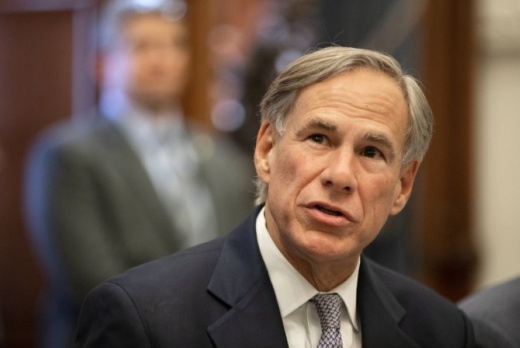“Texas is now in the ninth inning of dealing with the challenges of COVID-19,” he said. “And so we are looking forward to very rapidly getting ready for our economy to get back going.”
The state should anticipate a growing economy and lower unemployment rates in 2021, he said, citing the economic prospects from tech companies, such as Oracle and Hewlett Packard Enterprise, moving to the state. His priorities for the upcoming legislative session are meant to support what he calls Texas’ “pathway of prosperity.” That means passing a budget without adding new taxes, funding law enforcement and addressing homelessness by finding new solutions and banning homeless encampments, he said. It also includes addressing the reality of the COVID-19 pandemic by ensuring Texans have access to health care and telehealth services.
Abbott acknowledged how unprepared for a pandemic the U.S. was at the beginning of 2020 and how much work is left to do, such as developing a better way to distribute the antibody therapeutic drugs that can treat moderate COVID-19 cases.
“Infrastructure means more than just roads and stuff like that. Critical infrastructure also means medicine and health care,” Abbott said. “We can no longer farm out to other countries ... to deliver the critical health care infrastructure that we need.”
The good news, Abbott said, is that Texas is now in a position to be better prepared for a future pandemic.
According to the Texas Department of State Health Services, the first phase of the vaccine rollout will prioritize hospital staff who directly interact with COVID-19 patients, including doctors, nurses, custodial staffers and other staff members who provide diagnostic or laboratory services. It also includes emergency services and those who are in or work with people in high-risk populations, such as hospice care workers.
Next in priority are outpatient health care workers, including school nurses and urgent care staff, and last responders, such as medical examiners and funeral home workers.
The distribution plan was created by Texas’ Expert Vaccine Allocation Panel, EVAP, which makes recommendations to State Commissioner of Health John Hellerstedt. The work is ongoing, and EVAP will continue to recommend how and when to distribute the vaccine to those most at risk.
“This, candidly, is not rocket science,” Abbott said. “This is the type of mathematical probability that a high school student could learn. You want to get the biggest bang for your buck when you provide these vaccines.”
Vaccines first arrived in Texas hospitals Dec. 14, and hundreds have already received their first doses.
"I do expect to see very promising results on a daily basis going forward," he said. "And that means very promising results with regard to getting back to business in the state of Texas."





